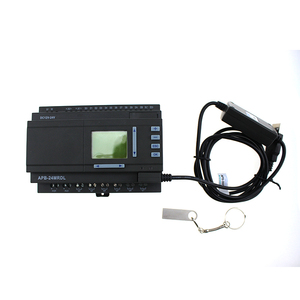Introduction to PLC Cable
In today’s advanced industrial landscape, PLC cable has emerged as a crucial component in the realm of automation and control systems. A PLC, or Programmable Logic Controller, is a digital computer used for automating industrial processes. The significance of PLC cables lies in their ability to seamlessly connect various components of a PLC system, ensuring effective communication and data transfer.
Types of PLC Cable
- Shielded PLC Cables: These cables are designed to minimize electromagnetic interference, making them ideal for environments with high levels of electrical noise.
- Unshielded PLC Cables: While they lack the shielding of their counterparts, unshielded PLC cables are often more flexible and lighter, suitable for less demanding applications.
- Multi-Core PLC Cables: Equipped with multiple conductors, these cables can connect various inputs and outputs, allowing for extensive control systems in complex setups.
- Single-Core PLC Cables: Ideal for straightforward applications, single-core cables are simpler and cater well to basic PLC requirements.
Applications of PLC Cable
- Industrial Automation: PLC cables play a critical role in connecting sensors, actuators, and other devices within automated machinery.
- Manufacturing Plants: Used extensively for monitoring and controlling processes, ensuring smooth operations and minimal downtime.
- Building Automation: These cables facilitate the management of heating, ventilation, and air conditioning systems, lighting, and security systems.
- Data Transmission: PLC cables support high-speed data transfer essential for real-time monitoring and control in various applications.
Features and Advantages of PLC Cable
- High Durability: Constructed from materials that withstand harsh industrial conditions, PLC cables are built for longevity and reliability.
- Flexibility: Many PLC cables are designed to be flexible, allowing for easy routing and installation in confined spaces.
- Temperature Resistance: They can operate effectively across a wide range of temperatures, ensuring functionality in diverse environments.
- Easy Installation: With user-friendly connectors and standardized design, PLC cables facilitate quick and efficient setups.
- Cost-Effectiveness: Investing in high-quality PLC cables can reduce the need for repairs and replacements due to their long operational life.










































































































































































































































 浙公网安备 33010002000092号
浙公网安备 33010002000092号 浙B2-20120091-4
浙B2-20120091-4